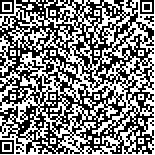Progress on improving plant stress resistance with molybdenum
Author:
Affiliation:
Hubei Province Engineering Laboratory for New-Type Fertilizer/ Microelement Research Center,Huazhong Agricultural University,Wuhan 430070,China
Clc Number:
S143.7+1
Fund Project:
Get Citation
秦晓明,赵优优,武松伟,胡承孝,孙学成. Progress on improving plant stress resistance with molybdenum[J]. Jorunal of Huazhong Agricultural University,2023,42(6):50-58.
CopyRelated Videos
Share
Article Metrics
- Abstract:
- PDF:
- HTML:
- Cited by:
History
- Received:October 10,2023
- Revised:
- Adopted:
- Online: December 12,2023
- Published:
Article QR Code
